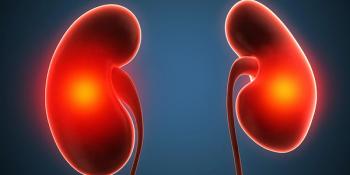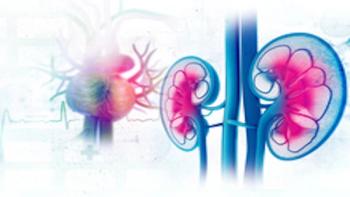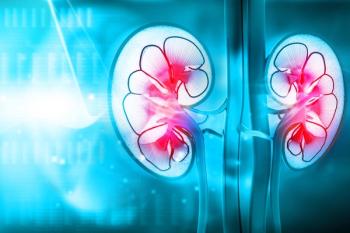
Chronic Kidney Disease
Latest News
Latest Videos

More News

Peer support can be a helpful facet of chronic kidney disease (CKD) self-management, but inconsistent provider awareness and referral practices are barriers to uptake at Canadian clinics.

A recent study found chronic kidney disease (CKD) to be an independent risk factor for incident heart failure with reduced ejection fraction (HFrEF) following percutaneous coronary intervention (PCI).

Chronic kidney disease is the fastest-growing noncontagious disease in the United States. On this episode of Managed Care Cast, we speak with Mike Spigler, vice president of patient support and education for the American Kidney Fund, who is spearheading the Unknown Causes of Kidney Disease Project, which aims to help underserved patients get to the root cause of their kidney disease, while also helping to solve this mystery for a broader patient population.

Continual nutrition modification is crucial in patients with moderate to advanced chronic kidney disease (CKD), and more interactive at-home solutions hold potential to improve nutritional nursing models after hospital discharge.

Monitoring glycemia in chronic kidney disease comes with challenges, but emerging strategies warrant more research in this patient population.

Researchers found that implementing an incremental schedule for hemodialysis in patients with residual kidney disease produced similar clinical outcomes and significant savings for health systems compared with hemodialysis administered on a more traditional schedule.

A recent study on Hispanics/Latinos in the United States found that lower potassium intake and higher sodium-to-potassium ratios may be more predictive of chronic kidney disease risk.

Despite underrepresentation in clinical trials of acute coronary syndrome treatments, a recent study suggests treatment strategies and outcomes in chronic kidney disease patients with ST-elevation myocardial infarctions (STEMI) have improved over time.

A literature review outlined the number of fertility complications that men and women with chronic kidney disease (CKD) face as well as the list of potential factors that can impact fertility and sexual functions in this population.

The risk-adjusted 1-year mortality rate was not different between Medicare Advantage and traditional Medicare beneficiaries with kidney failure who initiated dialysis.

A literature review pointed out the limited current research that has been conducted on how to manage pruritus in patients with chronic kidney disease (CKD) treated with hemodialysis, suggesting that more data is needed to improve symptom burden in these patients.

A new review article shows diabetes and hypertension are linked with arrhythmia and chronic kidney disease (CKD), but several other less common causes also exist.

Investigators confirmed an association between fatty liver disease related to metabolic dysfunction (MAFLD) and chronic kidney disease (CKD), and stressed a greater focus on treating MAFLD is needed to help manage risks.

Chronic kidney disease (CKD) and diabetes were associated with a higher risk of neurocognitive decline, but kidney disease stage did not appear to affect risk.

Incident end-stage kidney disease cases more than doubled among Asian individuals, and prevalent cases more than tripled for Asian, Native Hawaiian or other Pacific Islander, and Hispanic individuals.

Finerenone (Kerendia) was found to reduce risk of heart failure and improve other cardiovascular outcomes in patients with chronic kidney disease (CKD) and type 2 diabetes (T2D) regardless of heart failure history.


A recent review found that patients with chronic kidney disease (CKD) have fewer daily steps than the recommended physical activity benchmark, which has implications for their CKD prognosis.

Robert Gabbay, MD, PhD, of the American Diabetes Association (ADA), talks about the impact that finerenone could have on patients with kidney disease and diabetes.

A recent review found that families caring for a loved one with kidney failure lack information and continuity of care from health care professionals.

Robert Gabbay, MD, PhD, of the American Diabetes Association (ADA), breaks down the reasoning behind the organization's decision to add Bayer's Kerendia (finerenon) as a recommended drug for kidney disease prevention.

A quasiexperimental study conducted in China provides strong evidence that air pollution is linked to kidney impairment, which points to the importance of policy efforts to ensure clean air.

Robert Gabbay, MD, PhD, of the American Diabetes Association, explains why a section on chronic kidney disease management was added to the ADA's 2022 standard of care guidelines.

The organization announced a partnership with over 1000 nephrology providers to help implement CMS’ new Kidney Care Choices models beginning this year.

Adding risk factors specific to patients with chronic kidney disease (CKD) to risk prediction models for cardiovascular disease (CVD) could improve risk prediction capabilities for a population of patients often subject to invasive diagnostic procedures, investigators concluded.













